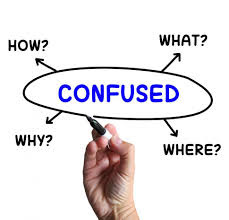This is a mixed-up post
that reflects the mixed-up status of where we are at. In the mixed-up world of
life after levels we are striving to find stability, a validity and a
robustness to our assessment procedures. We started back in 2013 with
a reflection of
the learning ladders that we were using. Many descriptors used where archaic
and not a reflection of the curriculum and the learning that took place. We had
a robust writing assessment system – a little bit paper/time heavy but one that
Ros Wilson had produced. We decided to redo our Learning Ladders and use what
we knew to try to get ahead of the game. As the new government and new curriculum
came in and out went levels, we forged ahead with our ‘new’ system. The first
thing that happened is that with the mastery curriculum in Maths we changed our
Maths Learning Ladder to reflect this single year group set of attainment
targets. Our Reading and Writing Learning Ladders used Ros Wilson and the
philosophy that learners can be at a variety of different levels to create continuums
to track progress. Sound philosophy, redesign, implementation and BOOM! Slowly over
the course of two years it all went downhill. The sound philosophy led to an
overwhelming presentation of options to the regular teacher. The difference between
the use of the Maths Learning Ladder and the English Learning Ladders meant confusion
rained down. There wasn’t a set methodology to lay out to teachers. Now
teachers don’t want complications with their assessment system – they want the simplest
system to give the maximum information. We’ve battled with these systems over
the last couple of years and that brings us to today.  Comparative judgement, descriptor
non-validity, data triangulation. Our current journey is the one upward through
the miasma of different ideas and conflicting theories. But its okay. No, it really
is. We all want the same outcome. Clarity, simplicity (as much as possible) and
return to focusing on learning. This current battel has temporarily swamped the
important cultural shift or paradigm change of that from teaching to learning. Roll
on the next two years.
Comparative judgement, descriptor
non-validity, data triangulation. Our current journey is the one upward through
the miasma of different ideas and conflicting theories. But its okay. No, it really
is. We all want the same outcome. Clarity, simplicity (as much as possible) and
return to focusing on learning. This current battel has temporarily swamped the
important cultural shift or paradigm change of that from teaching to learning. Roll
on the next two years. 